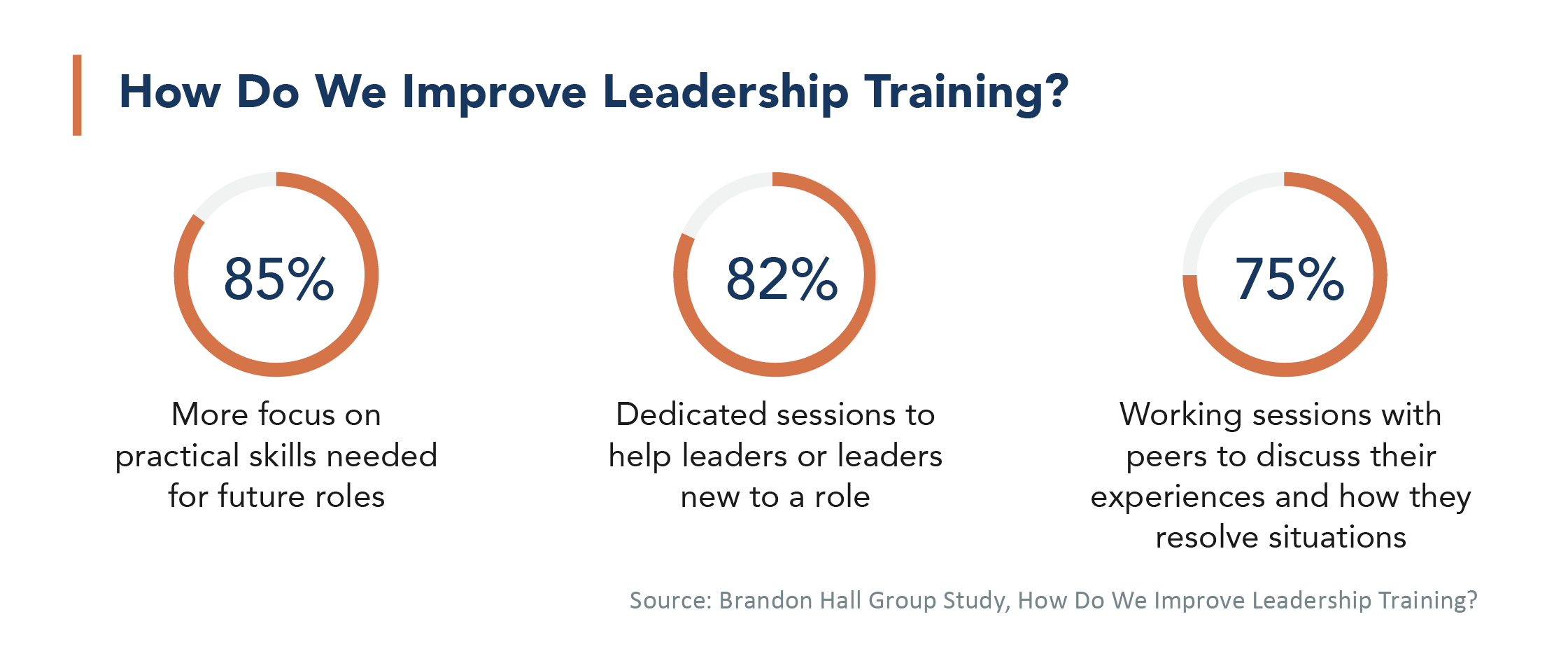
More than half of employers (55 percent) believe improving how high-potential leaders are identified is critical to scaling leadership development, according to Brandon Hall Group research. And the development of high-potential leaders ranks number-one in leadership development investment priorities for 2022.

Complexities
Prospective leaders are traditionally identified by their performance in their job roles. They attend classes, take courses, and are often promoted into leadership roles with little or no practical experience.
Even incumbent leaders are often selected for promotion based on current performance, not their potential for succeeding in more advanced roles, which often are unrelated or only tangentially related to their current capabilities.
Consequences
More organizations are beginning to understand that their approach to high-potential identification and development must be more sophisticated, according to Brandon Hall Group research:
- Identification of potential should be based not only on performance and ability but aspiration and engagement.
- Development should not only be more focused on learning new skills and behaviors but the ability and agility in applying them to new and unfamiliar situations.


Critical Questions
- What is the best way to identify high-potential leaders?
- How can we better understand how high-potentials might perform in new roles?
Brandon Hall Group POV
Look Into the Future When Assessing Leadership Potential
Organizations focus predominantly on reviewing, rating, and rewarding their employees’ past and current performance. But even the best employee in the past and present may not be the best leader for the future. Organizations should identify and develop leadership potential to drive future organizational performance.
Potential is not easy to define or measure. It is often seen as an intangible that separates a good employee from your next visionary, extraordinary leader. But potential should and can be assessed. Brandon Hall Group believes potential should be assessed in three ways.
Assessing Employee Potential
Capacity/Ability
Ability includes performance, which demonstrates at least some — but not necessarily all — of a person’s capacity. The employee may have other capabilities that are not apparent in job performance but might be a great fit for another role. For example, someone may have high emotional intelligence that you have not assessed for or that is not easily demonstrated in the person’s current role. Or someone may have experiences or education that could be leveraged in another role. All organizations have employees with hidden abilities that can be discovered.
Aspiration
Aspiration is important because it helps determine whether the person’s interests and objectives align with the organization’s needs. Employees’ career ambitions are important to understand, but their aspirations outside of work are also important because they could impact their career goals and their level of engagement.
Fully understanding aspiration requires managers to build trust with their employees and have ongoing conversations about what they want. Failure to understand aspirations can lead to identifying and developing people for responsibilities they don’t really want, which can lead to turnover and poor engagement, subpar performance, and eventually turnover.
Engagement
Whether someone is great at their current job or only good or average, engagement is an important indicator of potential. For example, high-potentials must have an appetite to tackle challenges and high-pressure situations, contribute beyond their specific job roles, collaborate well with others, be curious and take the initiative to drive change and innovation.

Prioritize Career Development and Succession Planning
Leader development is a journey that requires a variety of experiences, collaboration, coaching, and mentoring. Many organizations still do most leadership training in classrooms, with varying degrees of reinforcement. And too often there is no Individual Development Plan or it is not regularly reviewed and updated to account for evolving career goals and changes in someone’s personal life.
Employers must also improve succession planning so it serves as a continuous process to assess candidates for immediate, short-term, midterm, and long-term promotion. It should consider each person’s evolving performance, interests, aspirations, and engagement.
Give High-Potentials Opportunities to Practice and Demonstrate Their Agility
Leading organizations increasingly understand that they cannot expect leaders — at any level – to be effective without opportunities to practice and prepare for a new experience.
Therefore, leadership development should focus on experiences. This can include team projects, stretch assignments, and experiential learning that includes peer-to-peer learning.
An emerging tool is online simulations, which can bridge the knowing-doing gap that many high-potential leaders possess. They may have learned what to do but need help in applying the new skills and behaviors before they forget them.
Online simulations provide a safe environment for leaders to apply leadership and management skills in specific situations they may encounter in the future. And that is exactly what 85 percent of organizations believe needs improvement in leader training: a focus on practical skills needed for future roles.

Click here for information on Brandon Hall Group’s Professional Certification Program




